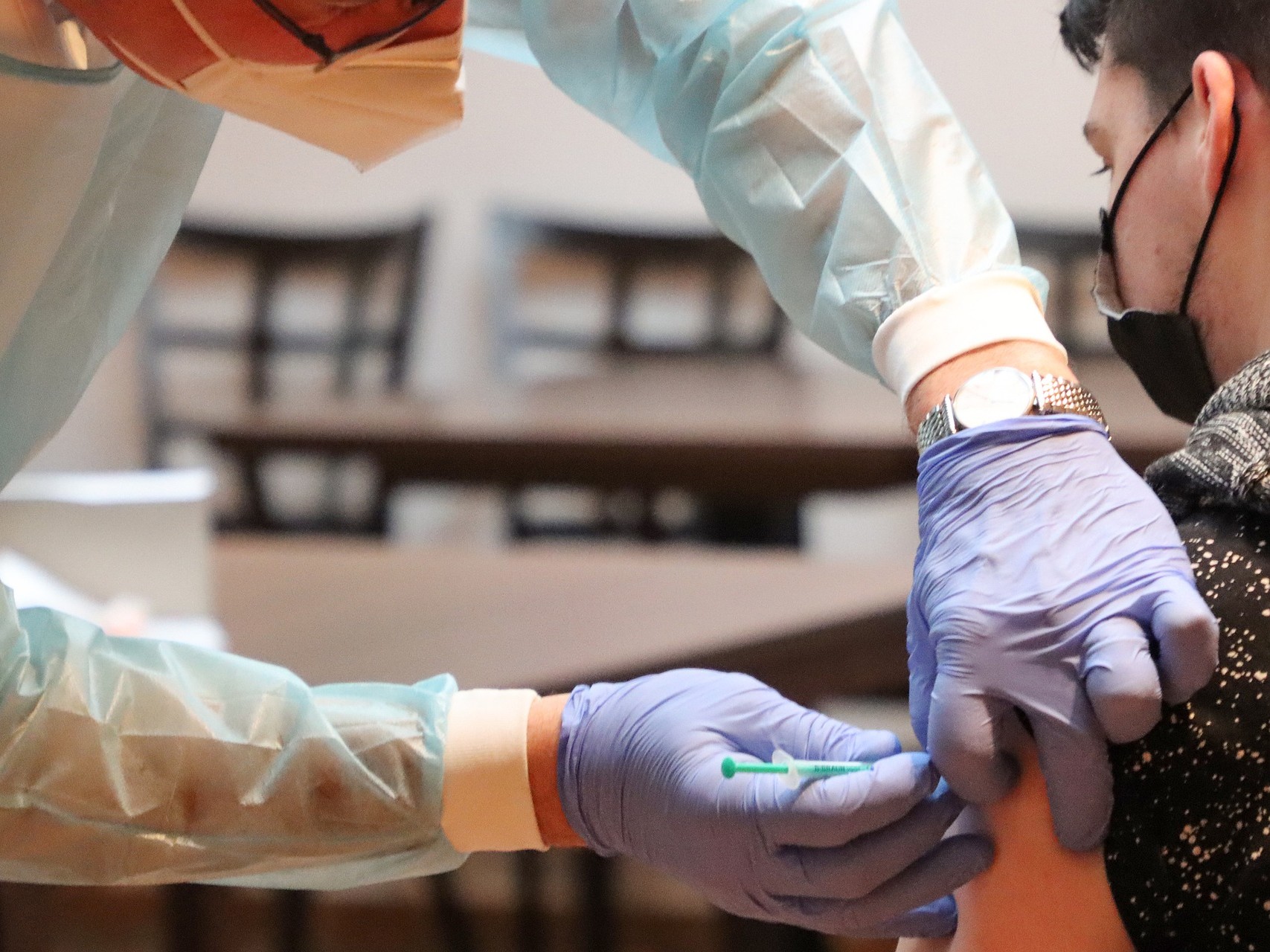How COVID-19 Vaccines May Mitigate Long COVID

Table of Contents
Reduced Risk of Initial COVID-19 Infection
The most direct way COVID-19 vaccines help mitigate Long COVID is by preventing initial infection altogether. Vaccines, particularly those offering high efficacy against prevalent variants, significantly lower the chances of contracting the virus. This is crucial because the risk of developing Long COVID is directly linked to the severity and duration of the initial infection.
- Lower Viral Load: Vaccines reduce the amount of virus in the body (viral load). A lower viral load translates to a decreased likelihood of developing persistent symptoms characteristic of Long COVID.
- Reduced Symptom Severity: Vaccines often result in milder initial symptoms, even if infection does occur. Less severe initial illness lessens the potential for lasting damage and the subsequent development of Long COVID.
- Supporting Studies: Several studies have shown a strong correlation between vaccination status and a reduced risk of developing Long COVID. [Cite credible sources such as studies published in reputable medical journals like the Lancet or JAMA]. These studies highlight the protective effect of vaccination against long-term complications.
Milder Symptoms and Shorter Duration of Illness
Vaccines are demonstrably effective in reducing the severity and duration of COVID-19 illness. A shorter illness duration directly contributes to a lower probability of progressing to Long COVID. The less time the virus has to wreak havoc on the body, the lower the likelihood of long-term consequences.
- Milder Symptoms in Vaccinated Individuals: Numerous studies have demonstrated that vaccinated individuals who do contract COVID-19 tend to experience milder symptoms, such as less severe respiratory issues, reduced fever, and shorter periods of fatigue. [Cite credible sources].
- Shorter Illness Duration: Research consistently shows a shorter duration of illness in vaccinated individuals compared to unvaccinated individuals. This reduced illness duration is a critical factor in minimizing the risk of Long COVID. [Cite credible sources].
- Long-Term Health Impacts: Milder symptoms and a shorter illness duration reduce the overall burden on the body, thereby mitigating the long-term health consequences often associated with Long COVID.
Potential Impact on Specific Long COVID Symptoms
While more research is needed, preliminary findings suggest that COVID-19 vaccines may influence the occurrence and severity of specific Long COVID symptoms. This is a rapidly evolving area of research, and ongoing studies are crucial to fully understand the mechanisms at play.
- Preliminary Findings: Some studies have hinted at a potential reduction in the prevalence or severity of symptoms like fatigue, brain fog, and shortness of breath among vaccinated individuals who still develop Long COVID. [Cite credible sources, highlighting the preliminary nature of these findings].
- Ongoing Research: Scientists are actively investigating how vaccines might impact the inflammatory processes and immune dysregulation implicated in Long COVID. Understanding these mechanisms is key to developing targeted interventions.
- Areas Needing Further Research: More research is needed to definitively establish the impact of vaccines on the diverse range of Long COVID symptoms, especially the neurological and cardiovascular manifestations.
Boosters and Vaccine Types
Booster shots play a crucial role in enhancing protection against COVID-19 and potentially mitigating Long COVID risk. Additionally, different vaccine types (mRNA, viral vector) might exhibit varying degrees of effectiveness in reducing Long COVID risk.
- Booster Shot Effectiveness: Data suggests that booster doses significantly increase antibody levels and broaden immune responses, offering enhanced protection against infection and severe disease, potentially reducing the risk of Long COVID. [Cite credible sources].
- Vaccine Type Comparison: Studies comparing the effectiveness of different vaccine types in preventing Long COVID are ongoing, and more research is needed to draw definitive conclusions. [Cite credible sources if available, acknowledging limitations].
- Optimal Vaccination Strategies: Current recommendations emphasize completing the primary vaccination series and receiving booster doses as appropriate to optimize protection against COVID-19 and potentially reduce the risk of developing Long COVID.
Conclusion: The Importance of COVID-19 Vaccination in Mitigating Long COVID
In summary, evidence suggests that COVID-19 vaccination is a crucial strategy in mitigating Long COVID. By reducing the risk of initial infection, lessening symptom severity, and potentially impacting specific Long COVID symptoms, vaccines offer significant protection. While further research is needed to fully understand the nuanced relationship between vaccination and Long COVID, the available data strongly supports vaccination as a preventative measure.
Protect yourself and others from the debilitating effects of Long COVID – get vaccinated today! [Include links to vaccination resources such as the CDC or WHO websites]. The fight against COVID-19 and Long COVID is ongoing, and continued vigilance, including vaccination and adherence to public health guidelines, remains essential.

Featured Posts
-
 Covid 19 E Long Covid La Vaccinazione Riduce Il Rischio Del 27
May 29, 2025
Covid 19 E Long Covid La Vaccinazione Riduce Il Rischio Del 27
May 29, 2025 -
 Top Music Lawyers 2025 Billboards Predicted Power List
May 29, 2025
Top Music Lawyers 2025 Billboards Predicted Power List
May 29, 2025 -
 Harry Potter Remake Snape And Mc Gonagalls Plan A Look At The Films Core Principles
May 29, 2025
Harry Potter Remake Snape And Mc Gonagalls Plan A Look At The Films Core Principles
May 29, 2025 -
 O Impacto Duradouro De Um Trailer Analise De Uma Cena Classica
May 29, 2025
O Impacto Duradouro De Um Trailer Analise De Uma Cena Classica
May 29, 2025 -
 1 Trending Thriller 2 Hours 10 Minutes Of Pure Spine Chilling Suspense
May 29, 2025
1 Trending Thriller 2 Hours 10 Minutes Of Pure Spine Chilling Suspense
May 29, 2025
